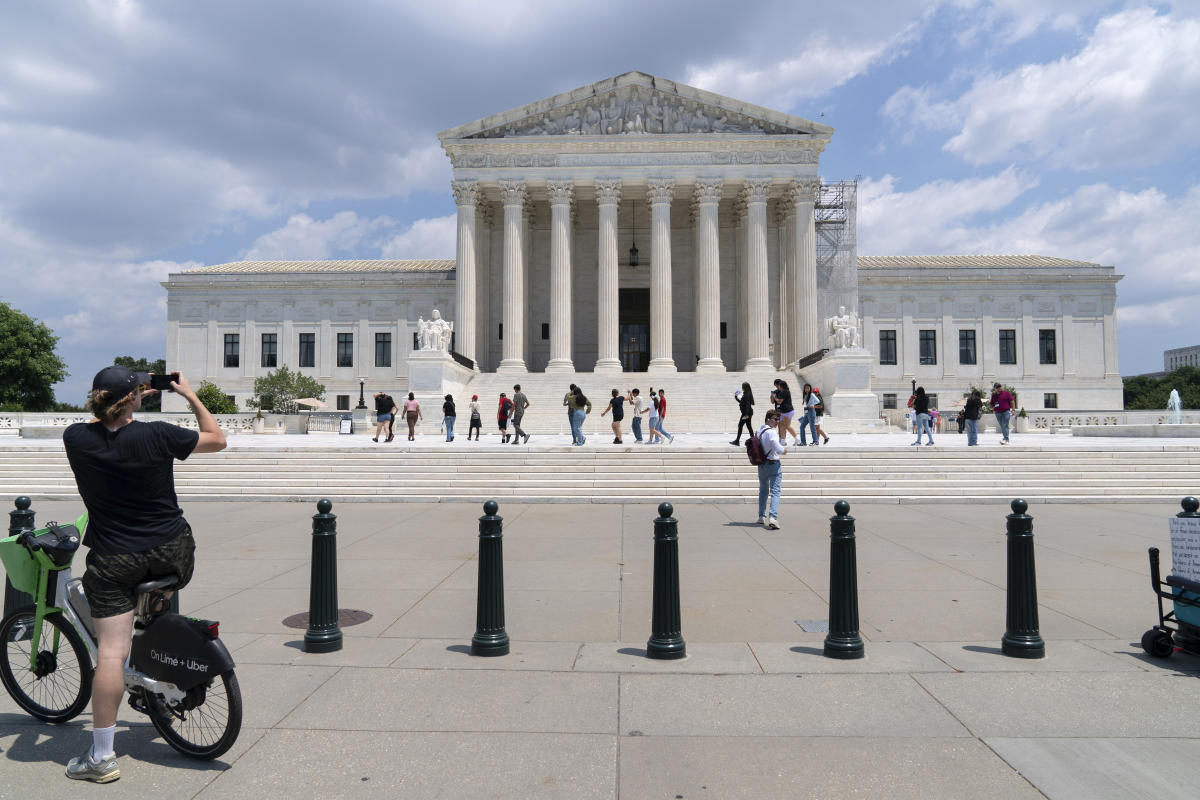WASHINGTON (AP) — The Supreme Court on Wednesday sided with the Biden administration in a dispute with Republican-led states over how far the federal government can go to combat controversial social media posts on topics including COVID-19 and election security.
In a 6-3 vote, the justices rejected lower court rulings that favored Louisiana, Missouri and others in their claims that officials in the Democratic administration leaned on social media platforms to unconstitutionally suppress conservative views.
Judge Amy Coney Barrett wrote for the court that the states and other parties did not have the legal right or authority to file a lawsuit.
Justices Samuel Alito, Neil Gorsuch and Clarence Thomas dissented.
The case is one of several pending in court this year involving social media companies in the context of free speech. In February, the court heard arguments over Republican-passed laws in Florida and Texas that ban major social media companies from removing posts because of the views they express. In March, the court set standards for when government officials can block their followers on social media.
The state law cases and the one decided Wednesday are variations on the same theme, complaints that the platforms are censoring conservative views.
The states had argued that White House communications officials, the surgeon general, the FBI and the U.S. Cybersecurity Agency were among those who exerted “relentless pressure” to force changes to online content on social media platforms.
But the justices generally seemed skeptical of these claims during arguments in March, and several worried that common interactions between government officials and the platforms could be affected by a ruling for the states.
The Biden administration underscored these concerns when it noted that the government would lose its ability to communicate with social media companies on anti-Semitic and anti-Muslim messages, as well as on issues of national security, public health and election integrity.
The Supreme Court had previously acted to put the lower courts’ rulings on hold. Justices Samuel Alito, Neil Gorsuch and Clarence Thomas would have allowed the restrictions on government contacts with the platforms to take effect.
Free speech advocates had urged the court to use the case to draw an appropriate line between the government’s acceptable use of the pulpit and coercive threats to free speech.
A three-judge panel of the New Orleans-based 5th US Circuit Court of Appeals had previously ruled that the Biden administration had likely exerted unconstitutional pressure on the media platforms. The appeals panel said officials cannot seek to “enforce or significantly encourage” changes to online content. The panel had previously limited a more sweeping order from a federal judge, who sought to involve even more government officials and ban merely encouraging substantive changes.
The case is Murthy v. Missouri, 23-411.
___
Follow AP’s coverage of the U.S. Supreme Court at https://apnews.com/hub/us-supreme-court.







